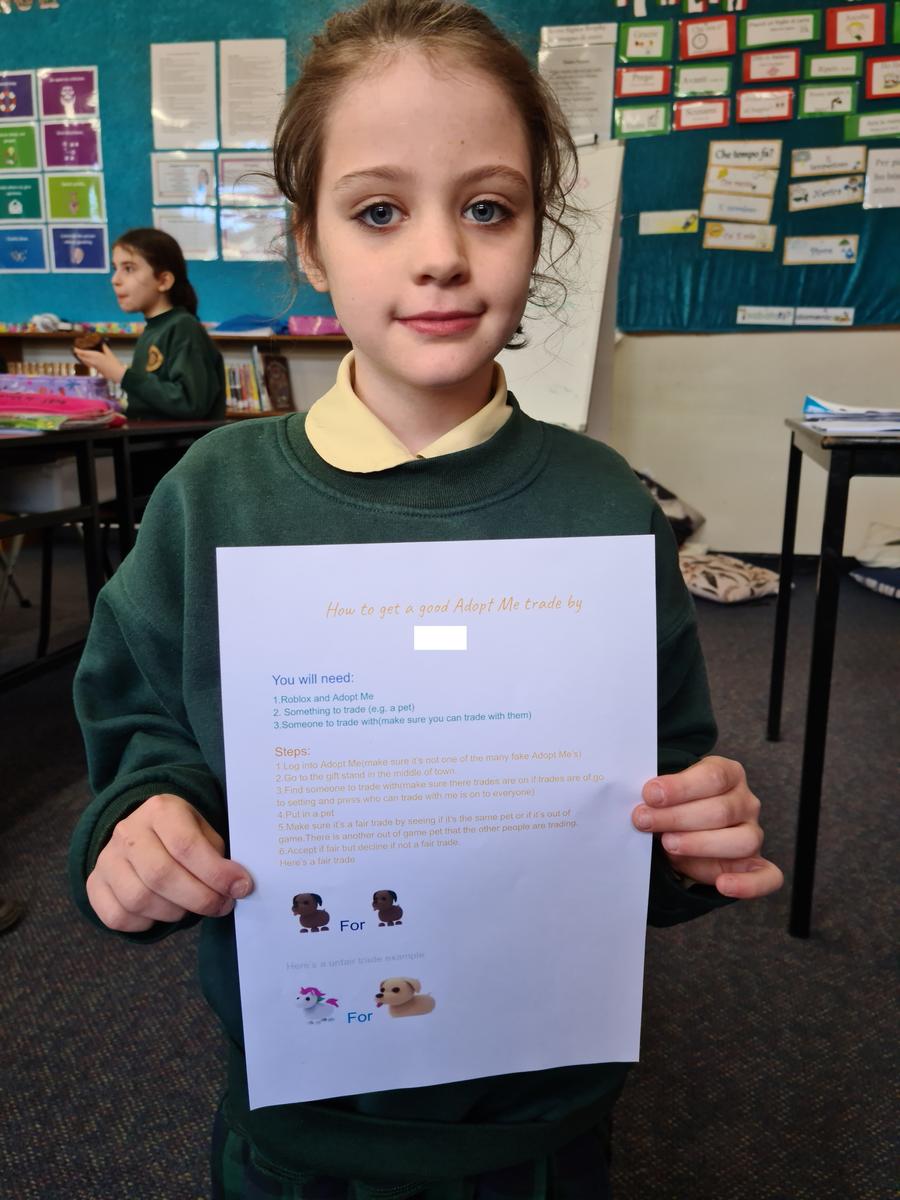News from MLC
Procedural Writing and Inquiry

News from MLC
Procedural Writing and Inquiry
Over the last few weeks, the MLC students have been working on Procedural writing in class. We started off the topic by looking at examples of procedures such as recipes, board game rules and how to play particular sports.
The students completed a pre-test where they had to choose one of three topics and write a procedure based on their prior knowledge.
The topics they had to choose from were:
After learning more about procedures, the students wrote a guide to our favourite class sport: Dodgeball. We had a lot of fun going outside to play dodgeball to test our procedures. The students learned a lot about how important it is to be clear when writing instructions.
At the end of the topic, students wrote a new procedure and it was great to see how far they have all come when comparing their pretest procedure with their final piece.






This term, our Inquiry topic is called 'Discovery'. Over the course of the term, students will learn about forces and functions. They will be learning about how forces can be exerted on one object by another as they design and build a balloon-powered car. The students have paired up to theorise, design, and test a balloon-powered car and the goal is to make it travel five metres. The students are very excited and they have already started coming up with ideas of what they could build their car out of.
This topic aims to put the students into the role of an inventor. As we recently learned, inventors cannot be afraid of trying new things. Last week, the students have been learning about “wonderment and awe” and “fear.” As inventors, we cannot be afraid to try something and fail, but instead, we must learn from our past mistakes. Recently, MLC had the task of putting on a role play to demonstrate “wonderment and awe” to appreciate responding in this way when learning about the world.
In Maths, we have started our topic on division. I have been teaching the students some strategies to help them solve division problems mentally. These strategies involve using a simple ‘sharing or grouping’ approach. For example, think of a problem such as 15 divided by 3 as having 15 lollipops and sharing them with 3 students. How many lollipops will each student have? Our answer is 5. Therefore, 15 divided by 3 is 5.
Another strategy we have been exploring is using our multiplication facts to help us answer division problems with larger numbers. For example, 12 times 12 is 144, therefore 144 divided by 12 must be 12. The students have been finding the strategies very helpful.
Next week, we will be learning how to divide using written strategies. This will help students with numbers that are a lot bigger which they may not know multiplication facts for.
Kind Regards
Mr Thomas Brophy
MLC Classroom Teacher